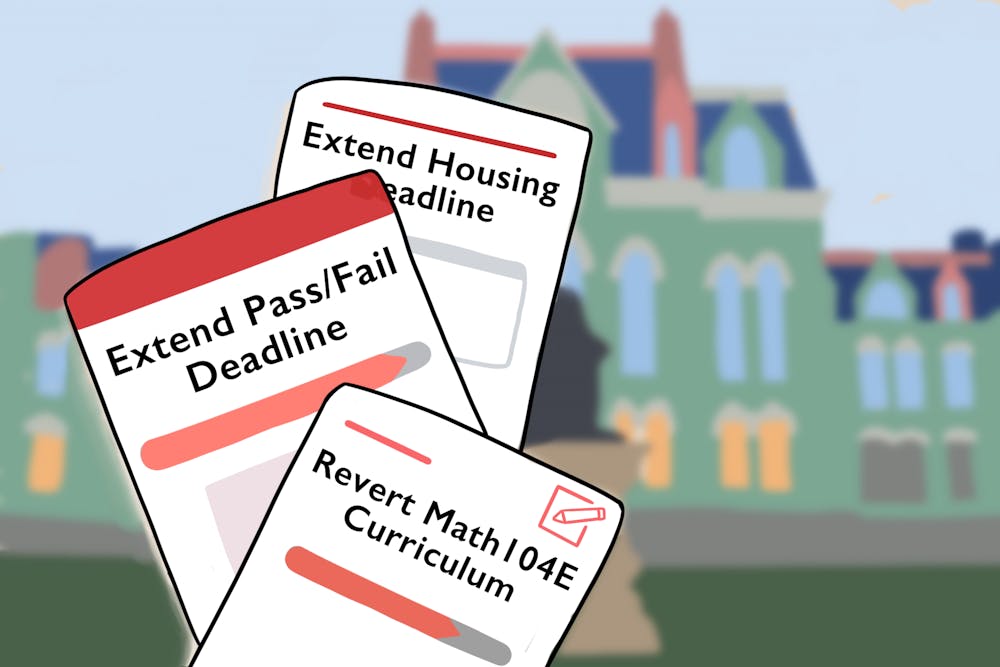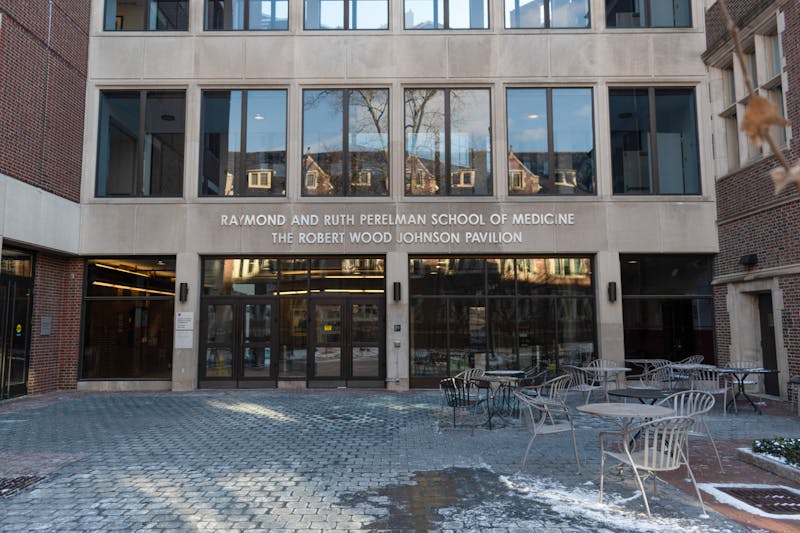
When it was announced one week prior to move-in that Penn students would be learning remotely this fall, I, and the rest of the Class of 2024, expected a non-traditional first semester of college. What we did not expect, however, was to encounter a series of challenges accompanying this unprecedented semester of virtual learning and the repetition of invalidating responses from administration and faculty that followed. This introduced Penn’s freshman class to a very real problem on our campus: a lack of accountability.
In registering for MATH 104 earlier this fall, I expected a comfortable review of the topics I had learned in the year before in my high school Calculus BC course. Instead, the semester started off with Taylor series, arguably one of the most difficult concepts in Calculus II (Penn’s Calculus I/MATH104 is Calculus II at most other schools- something the UA is working to change). And seeming to make the situation worse, these challenging topics were taught using unfamiliar methods like the “Big O” notation. With a petition on these concerns garnering over 500 signatures, I was relieved to see that other students were finding the material and class structure of YouTube lectures and limited professor-student interactions to be difficult as well.
Given the number of students who felt this way, you can imagine my, and that of other 104 students, disappointment in the response from the math department essentially telling students there was nothing to be done. To make matters worse, dismissive jabs from at least one 104 professor followed on Twitter. As a result, students continue to spend the majority of their time on 104 material, supplementing videos with other videos and attending multiple office hours a week to relearn topics a lot of us have learned before.
A similar struggle ensued a few weeks later as we approached the pass/fail deadline for the semester. With several professors of multiple large introductory classes stating that grading formulas would be calculated at the end of the semester and current overall grades not being visible to students, over 3200 students, myself included, petitioned Penn, President Gutmann, and Provost Pritchett, to extend the pass/fail deadline. Students were and are continuing to face significant stressors in their lives right now whether political, emotional, physical, or psychological, and the grading of courses this semester did little to alleviate these sources of worry.
I later came to find out that this request had been denied, not through a direct response from administration, but instead through the screenshot of correspondence between administration and Penn Student Government which had been sent in a GroupMe chat. I don’t think I’m alone in believing that students deserved a better response from our administration to an issue facing a significant portion of Penn students.
Unfortunately, this pattern would repeat itself several more times with the issues of the lengthy, uninterrupted fall calendar and the shortening of our spring break, along with I'm sure multiple other concerns from students that have gone unaddressed and been swept under the rug. Granted, every once in a while, Penn does respond to the concerns of its students, such as with its recent donation to Philadelphia schools. However, these occasions remain few and far between, and often only come after persistent student activism.
As most college students have come to learn these past two semesters, online classes are hard. They are usually accompanied by difficult exams to compensate for at-home testing environments and protocols, asynchronous lectures or previously-recorded course material that are difficult to engage with, and an overall increase in workload that has stretched students thin. Rather than be cognizant of these struggles and their well-documented impact on students’ mental health, Penn has chosen to be inaccessible, highlighting a harmful and unfortunate disconnect between students, faculty, and administration.
When one goes to a restaurant and receives something different from what was ordered, the waitstaff is made aware and replaces the dish. When I order a sweater online and receive the wrong size (oh, the plights of online shopping), I return it and exchange it for a better fit. Viewing higher education similarly, a service students and their families are paying Penn a significant amount of money for, the concerns of students must be met with transparent, decisive, and actionable responses from faculty and administration.
We understand this is a difficult time for everyone, and we can expect similar challenges in the semester of virtual programming ahead. All we ask is that our university leaders not expect students to suffer silently and compromise their mental wellness for the sake of just “dealing with it,” but act with compassion and a sense of accountability when making decisions that could have considerable impacts on our lives, and openly communicate those decisions to all of us. In short, act with empathy – it’s the least Penn can do.
ALEXANDER EAPEN is a first-year student in the College.
The Daily Pennsylvanian is an independent, student-run newspaper. Please consider making a donation to support the coverage that shapes the University. Your generosity ensures a future of strong journalism at Penn.
Donate






